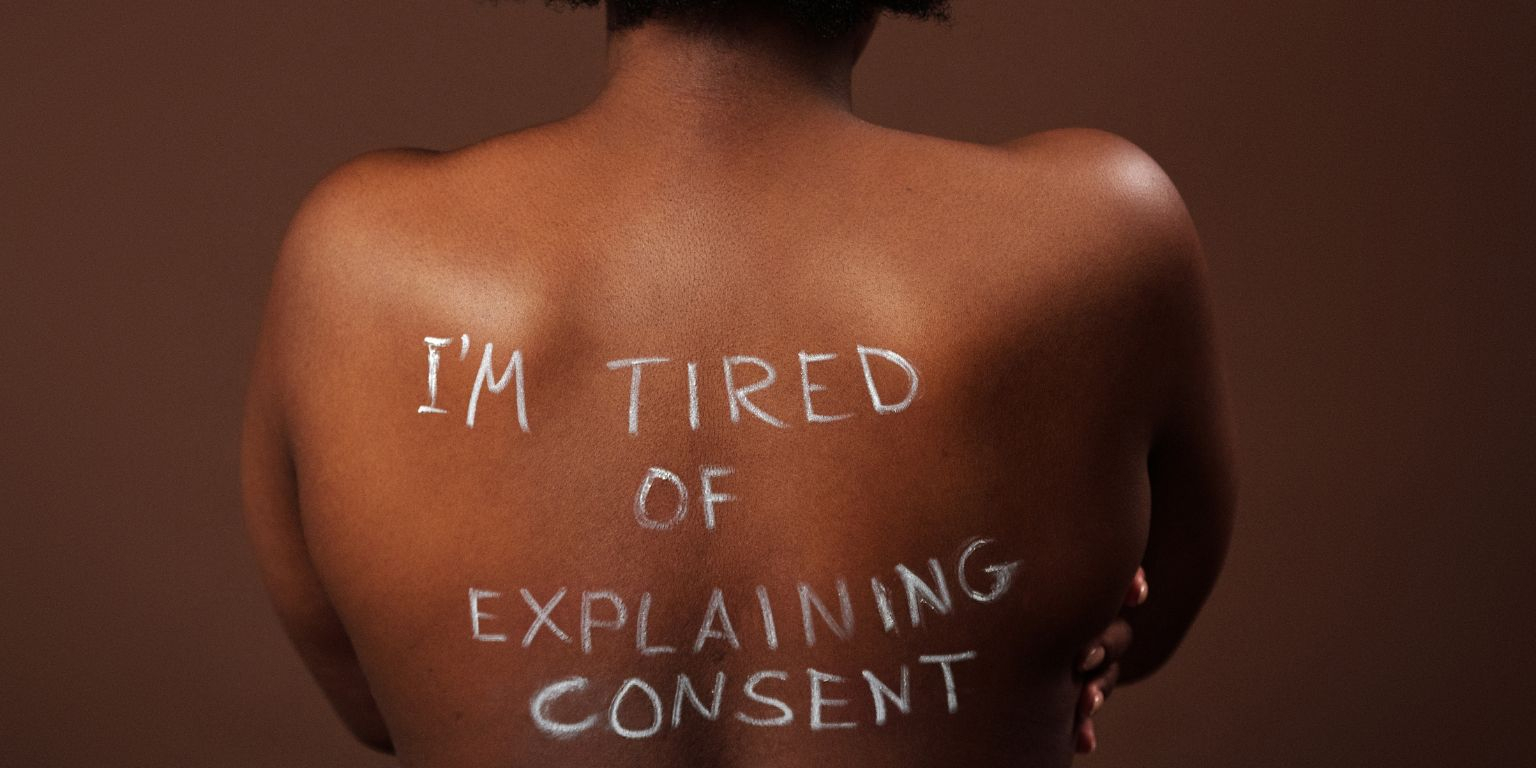
17 Feb Let’s talk about consent
Posted
in Industry Knowledge
In recent times, we have been talking a lot about consent. Sex-positive advocates and sexual violence activists have worked tirelessly to spread the message that not only is consent sexy, but enthusiastic and freely given consent is mandatory in intimate encounters. However, consent is not just about saying “yes” while having sex; it is a key factor in pro-social behaviour and interacting with other people.
WHAT IS CONSENT?
Consent is applicable across a range of different situations. Just think of any situation where you have an interaction with another person, including physical touch, performing medical procedures and giving access to images and personal information. The fact is that obtaining consent has become embedded in our lives; from accepting “cookies” on websites to signing up for mailing lists or giving your personal medical information to a doctor, we are required to give our consent on a fairly regular basis. We are acknowledging that we are sharing something with another person, and we agree to this occurring. We also know we can withdraw this consent at any time, as this is a key feature of consent. The fact it is given once doesn’t mean that this holds forever. In short, the person who gives consent controls that consent.
In an earlier blog post, I talked about how piracy affects people who create adult content. While it impacts income, leaves content open to copyright infringement and effects the ability to track content, it is also a violation of consent. Content creators choose where they put their content to ensure it is protected from piracy but also to ensure their safety. Geoblocking tools embedded in site settings can help keep adult models from being seen and identified in places that could put them in harm’s way. Sex work, although becoming a mainstream discussion point, continues to be highly stigmatised. Stigma, where a negative attitude is associated with a characteristic, trait or circumstance, is destructive in that it isolates people, diminishes their worth and normalises harmful behaviour towards them.
some facts about piracy
Let’s go back to piracy… pornography is the most pirated content item on the internet, with recent stats showing that 35.8% of all pirated content is from the adult industry. Movies are not far behind adult content, comprising 35.2% of pirated content. Furthermore, according to the same report, 70% of online users find nothing wrong with online piracy. So we have a situation where adult content is being pirated at an extraordinary rate, violating the consent of those who created it, and with a majority of online users seeing no problem with this. Piracy has always occurred, however, with accessibility to digital media and the ease at which it can be copied and shared, systems, governments and individuals have struggled to keep one step ahead. To address piracy, particularly when it involves content as sensitive as that produced by the adult industry, the online community needs to be active in addressing piracy when it occurs and creating an environment where it isn’t acceptable to share content that violates consent.
how do we address this?
It all comes back to the tenets of obtaining consent and the foundations that underpin it. This may also shed light on why such large groups of people think it is ok to pirate pornography and share it without consent. Engaging with and consuming media is, by extension, an interaction with a person. A person who has an identity and wishes and desires just like you do. Being an adult content creator does not grant a free-for-all on the products we produce. This is not solely about income, or profit generation, like it is in other creative industries. When it comes to pornography, consent applies in the same ways and for the same reasons as it does for anyone else in the general population. If we treat it and the people who make adult content in this way, that will be a step forward in not only upholding consent but also continuing down the path to addressing stigma.
Rem Sequence is an Australian adult content creator, blogger, and internationally published alt model. She has a background in psychology, philosophy and political science and worked in health and sex education, youth work and trauma counselling for almost two decades. Now, she works full time in the adult industry, as well as indulging her passion for arts, writing and music in numerous side projects.
In recent times, we have been talking a lot about consent. Sex-positive advocates and sexual violence activists have worked tirelessly to spread the message that not only is consent sexy, but enthusiastic and freely given consent is mandatory in intimate encounters. However, consent is not just about saying “yes” while having sex; it is a key factor in pro-social behaviour and interacting with other people.
WHAT IS CONSENT?
Consent is applicable across a range of different situations. Just think of any situation where you have an interaction with another person, including physical touch, performing medical procedures and giving access to images and personal information. The fact is that obtaining consent has become embedded in our lives; from accepting “cookies” on websites to signing up for mailing lists or giving your personal medical information to a doctor, we are required to give our consent on a fairly regular basis. We are acknowledging that we are sharing something with another person, and we agree to this occurring. We also know we can withdraw this consent at any time, as this is a key feature of consent. The fact it is given once doesn’t mean that this holds forever. In short, the person who gives consent controls that consent.
In an earlier blog post, I talked about how piracy affects people who create adult content. While it impacts income, leaves content open to copyright infringement and effects the ability to track content, it is also a violation of consent. Content creators choose where they put their content to ensure it is protected from piracy but also to ensure their safety. Geoblocking tools embedded in site settings can help keep adult models from being seen and identified in places that could put them in harm’s way. Sex work, although becoming a mainstream discussion point, continues to be highly stigmatised. Stigma, where a negative attitude is associated with a characteristic, trait or circumstance, is destructive in that it isolates people, diminishes their worth and normalises harmful behaviour towards them.
some facts about piracy
Let’s go back to piracy… pornography is the most pirated content item on the internet, with recent stats showing that 35.8% of all pirated content is from the adult industry. Movies are not far behind adult content, comprising 35.2% of pirated content. Furthermore, according to the same report, 70% of online users find nothing wrong with online piracy. So we have a situation where adult content is being pirated at an extraordinary rate, violating the consent of those who created it, and with a majority of online users seeing no problem with this. Piracy has always occurred, however, with accessibility to digital media and the ease at which it can be copied and shared, systems, governments and individuals have struggled to keep one step ahead. To address piracy, particularly when it involves content as sensitive as that produced by the adult industry, the online community needs to be active in addressing piracy when it occurs and creating an environment where it isn’t acceptable to share content that violates consent.
how do we address this?
It all comes back to the tenets of obtaining consent and the foundations that underpin it. This may also shed light on why such large groups of people think it is ok to pirate pornography and share it without consent. Engaging with and consuming media is, by extension, an interaction with a person. A person who has an identity and wishes and desires just like you do. Being an adult content creator does not grant a free-for-all on the products we produce. This is not solely about income, or profit generation, like it is in other creative industries. When it comes to pornography, consent applies in the same ways and for the same reasons as it does for anyone else in the general population. If we treat it and the people who make adult content in this way, that will be a step forward in not only upholding consent but also continuing down the path to addressing stigma.
Rem Sequence is an Australian adult content creator, blogger, and internationally published alt model. She has a background in psychology, philosophy and political science and worked in health and sex education, youth work and trauma counselling for almost two decades. Now, she works full time in the adult industry, as well as indulging her passion for arts, writing and music in numerous side projects.


